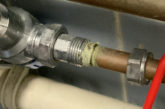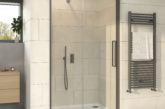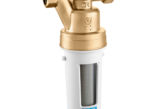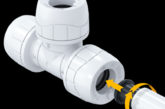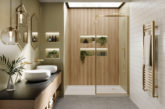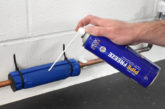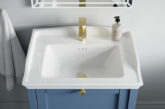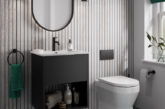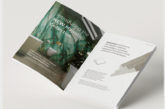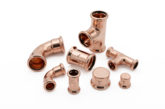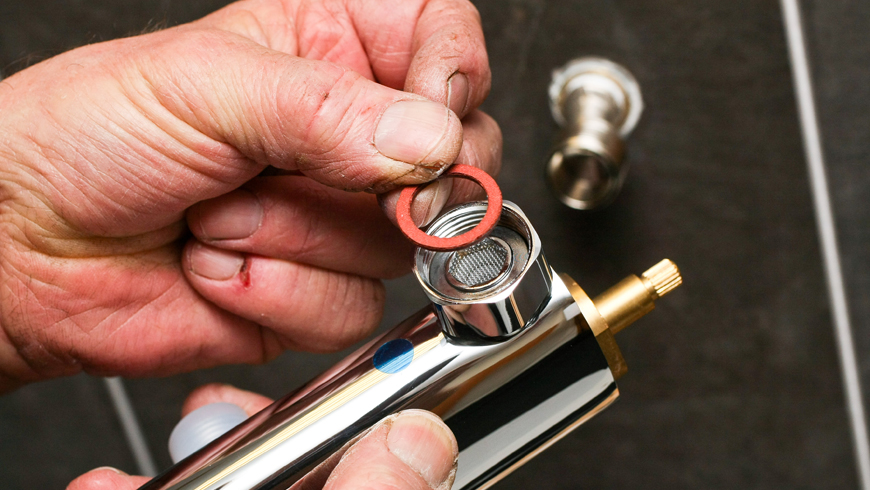
When it comes to selecting and installing the correct shower, it is vital that installers are aware of the different water systems and the products that deliver the best levels of performance. Steve Saunders, Senior Technical Manager at Triton, answers some of the most frequently asked questions by installers looking to get to grips with domestic water systems.
What are the different water pressure types to be aware of when fitting a mixer shower?
Generally speaking, the majority of mixer showers are suitable for both low and high pressure water systems, however, this is not always clear-cut and there can be exceptions. High pressure water systems consist of either an unvented or thermal store hot water cylinder, or a combination boiler which heats water on demand, without the need for a storage cylinder. A mixer shower draws on both the hot and cold water supplies simultaneously to deliver a comfortable water temperature for the end user.
Still a very common household plumbing system is a gravity-fed system which works by mixing water from the cold water cistern in the loft and the hot water cylinder in the airing cupboard. This is generally a low pressure water system as the measurement from the base of the cistern to the showerhead is often no more than 1 metre, which is 0.1 bar static pressure. Having a low pressure system does not have to limit the choice of mixer shower, as many models are designed to offer acceptable performance even in a low pressure scenario. If the water cistern and cylinder is large enough, a pump can be added to boost the flow rate performance and enhance the showering experience.
I am currently refurbishing bathrooms in a block of flats where the gravity-fed water pressure on the ground floor is 1bar. How can I best overcome pressure problems when installing new showers?
Firstly, it is the case that the higher the building, the lower the water pressure will be toward the higher floors. This is simply due to the nature of gravity’s impact on water distribution within a building.
For bathrooms located on higher floors, there are two options when selecting a mixer shower to install. Choose either a mixer shower that is compatible with a low pressure system and provides an acceptable flow rate, or one that can be improved using a booster pump suitable for mixer showers. Triton’s T40i booster pump offers a no plumbing solution to increase the flow from a mixer shower by simply connecting a shower hose between the shower outlet and the pump inlet. This will instantly improve shower experience for the end user.
Another option is to install a mains-fed electric shower where the pressure of the incoming mains water supply is at least 1 bar, where water pressure isn’t as much of an issue. There are also gravity fed electric shower models with an integrated pump that offer the user an invigorating showering experience when the mains water pressure is low or unreliable.
What plumbing requirements should I think about when replacing an existing mixer shower or installing one in a new bathroom?
First of all, check the type of water system and its pressure before purchasing a mixer shower. Some mixers are only suitable for a low pressure gravity system, some for high pressure systems such as those with a combi boiler and some are suitable for all types of hot water system. A simple way to check this is to use the manufacturer’s brochure.
A check should also be made to determine whether an old shower has its incoming hot water supply on the left or right and to establish the pipe centre measurement between inlets. This will ensure a replacement can be found that is compatible and easy to fit, avoiding expensive pipework alterations. For a new installation, it is also advisable to check the pipe fittings needed are easy to connect to.
As I work in a hard water area, what measures can I take to minimise the effect of scale?
Installing a shower with either a rub clean or quick clean spray plate is a simple way to allow a customer to remove scale and maintain the performance of their shower. Some electric showers also have phased shutdown whereby, at the end of each shower, cold water continues to flow through for a few seconds to flush hot water out and reduce the build-up of scale inside the heater.
To fully protect the internal parts of electric and mixer showers, it is recommended that a scale inhibitor is fitted if the hardness of water is above 200 parts per million (ppm). This can be measured using a water hardness test kit.


